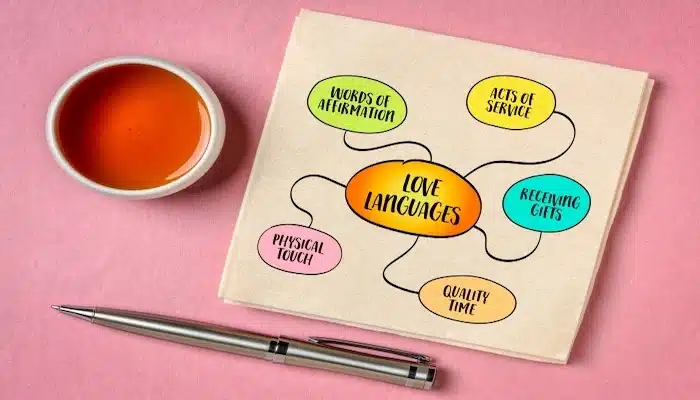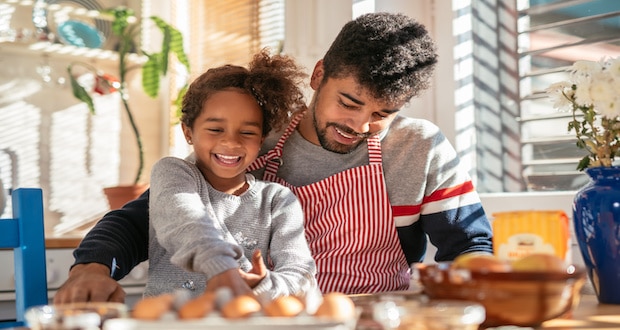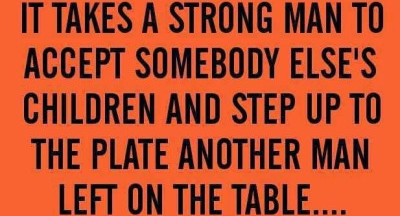Speaking The Language Of Love
Building Deeper Connections by Learning How They Feel Loved

Love isn’t just about how much we care—it’s about how well we show it.
Sometimes, despite our best efforts, what we do for someone doesn’t land the way we hoped. Although we might feel like we’re giving our all, something still feels a little off. In reality, love isn’t a one-size-fits-all experience. Instead, it’s a language—and when we learn to speak it fluently, we can create stronger, deeper connections that stand the test of time.
Each person experiences love in their own unique way. While most people appreciate all five languages to some degree, one or two usually stand out as the most meaningful. These primary love languages reflect how we feel truly seen, valued, and emotionally connected.
First introduced by Dr. Gary Chapman in his 1992 book, The Five Love Languages: How to Express Heartfelt Commitment to Your Mate, this framework has helped countless people better understand how they give and receive love. Whether in romantic partnerships, friendships, or even family dynamics, learning how to “speak” another person’s love language can transform how we relate to one another.
You might naturally express affection differently than you prefer to be loved.
This post is the beginning of a series that will explore each of the five love languages in depth. But before we go deeper, let’s take a moment to understand the basics and why they matter so much–and how to figure out what your love language is.
Here’s a closer look at the five love languages:
Words of Affirmation
Some people feel most loved through words. Compliments, encouragement, and expressions of gratitude remind them they are seen and appreciated. It’s not about empty flattery—it’s about genuine, heartfelt words. A kind note on the kitchen counter or a simple “I’m proud of you” can carry far more weight than grand gestures.
When spoken from the heart, words become powerful anchors of reassurance.
Acts of Service
For others, actions speak louder than words. Doing something helpful—like folding laundry without being asked or bringing home dinner after a long day—communicates deep care. It’s not about the task itself; it’s the love behind the action that matters most.
When you serve thoughtfully, you tell someone, “I see you, and you matter to me.”
Receiving Gifts
This love language is often misunderstood. It’s not about being materialistic. It’s about thoughtfulness. A meaningful gift—a handwritten note, a favorite snack, a small keepsake—becomes a tangible reminder someone was thinking of you. People who value gifts often cherish these symbols for years.
It’s not the price tag that counts; it’s the heart behind the giving.
Quality Time
For many, undivided attention is the ultimate sign of love. It’s not just about being in the same room; it’s about being fully present. Watching a movie together, enjoying a quiet dinner without phones, or taking a walk—these shared experiences create lasting bonds.
When you invest your time, you invest your heart.
Physical Touch
Some individuals feel most connected through touch. A hug, a hand on the shoulder, or holding hands can say, “I’m here. I care.” Physical touch isn’t always romantic—it’s often a quiet, steady reminder of love and safety.
For those who speak this language, closeness builds trust and security.
Identifying Your Love Language
Finding your love language begins with self-reflection. Think about times you felt deeply appreciated. Was it after a heartfelt compliment? A surprise act of kindness? A warm hug? These memories hold important clues.
Self-assessments based on Chapman’s work can also help. If you’re curious about your love language, try the quiz below:
Love Languages Self Assessment
Read each statement carefully. Choose the answer that best matches your feelings. Track your choices (A, B, C, D, or E). At the end, the letter you select most often reveals your primary love language!
1. When I feel most loved, it’s because…
A) Someone gives me a meaningful compliment.
B) I receive a thoughtful gift.
C) I get to spend quality time with someone I care about.
D) Someone helps me with something important.
E) I receive a hug, a kiss, or some form of physical touch.
2. The best way my loved ones can show they care is by…
A) Expressing their appreciation for me in words.
B) Surprising me with something special.
C) Making time to be with me, no distractions.
D) Doing something helpful for me without being asked.
E) Holding my hand or giving me a warm embrace.
3. When I give love, I tend to…
A) Give words of encouragement and praise.
B) Surprise others with small gifts or gestures.
C) Plan meaningful activities to share together.
D) Do helpful things for them, like chores or errands.
E) Offer hugs, pats on the back, or other physical touch.
4. When I’m feeling down, what lifts my spirits the most is…
A) Someone reassuring me with kind and uplifting words.
B) A small token of appreciation or an unexpected gift.
C) Spending time with a loved one who listens and supports me.
D) When someone takes a task off my plate without me asking.
E) A comforting hug or some form of physical affection.
5. On special occasions, I most appreciate…
A) A heartfelt letter or spoken message.
B) A carefully chosen gift that shows thoughtfulness.
C) Spending uninterrupted time with someone I love.
D) When someone takes care of something for me.
E) A warm embrace or holding hands.
6. When I think about past meaningful moments, they usually involve…
A) Deep, meaningful conversations or heartfelt words.
B) Receiving a special, thoughtful gift from someone.
C) Quality time spent with someone important to me.
D) Someone going out of their way to help me.
E) Physical closeness, like holding hands or a comforting touch.
7. If my partner forgets to…
A) Compliment me or express appreciation, I feel unvalued.
B) Get me something small on a special occasion, I feel unimportant.
C) Spend enough time with me, I feel neglected.
D) Help out when I need it, I feel overwhelmed.
E) Give me physical affection, I feel distant.
8. When someone I love surprises me, I prefer it to be…
A) A heartfelt message telling me how much I mean to them.
B) A meaningful gift that shows they were thinking of me.
C) A planned date or activity we can enjoy together.
D) A thoughtful gesture, like running an errand for me.
E) A warm, unexpected hug or kiss.
9. If I’m having a tough day, I most appreciate when my partner…
A) Tells me they believe in me and encourage me.
B) Brings me something small to show they care.
C) Sits down and spends time with me, listening and engaging.
D) Takes care of something on my to-do list.
E) Wraps me in a warm hug and holds me close.
10. I feel closest to my partner when…
A) They tell me how much they love and appreciate me.
B) They give me a meaningful or thoughtful gift.
C) We are spending quality time together with no distractions.
D) They do something practical to help me out.
E) We are physically close, like holding hands or cuddling.
11. My ideal way to reconnect after time apart is…
A) Hearing how much they missed me and why.
B) Receiving a small token that shows they were thinking of me.
C) Spending intentional one-on-one time together.
D) Being surprised with an act of kindness or service.
E) Sharing a warm hug or affectionate touch.
12. When I want to show someone I care, I tend to…
A) Tell them in words how much they mean to me.
B) Buy or make them a special gift.
C) Plan a fun activity or spend quality time with them.
D) Offer to help them with something they need.
E) Show affection through touch, like a hug or pat on the back.
13. When I walk into a room, I feel most welcome when…
A) Someone greets me with a kind word or compliment.
B) Someone gives me a small, thoughtful gift.
C) A loved one makes time to chat and catch up.
D) Someone helps me carry something or offers assistance.
E) A friend or family member gives me a warm hug.
14. When I express love, I feel most satisfied when…
A) My words make someone smile.
B) I find the perfect gift to make someone’s day.
C) I have a deep conversation or meaningful experience with them.
D) I can ease their burden by doing something helpful.
E) I can physically express it through a hug, kiss, or touch.
15. When thinking about childhood memories, I cherish…
A) Times when someone told me they were proud of me.
B) Times when I received a special gift that meant a lot.
C) Moments when I had undivided attention from a loved one.
D) When someone went out of their way to help or support me.
E) Hugs and physical closeness from family members.
16. I feel most secure in a relationship when…
A) My partner reassures me with kind words.
B) My partner gives me thoughtful gifts as reminders of love.
C) We make time to be together consistently.
D) My partner helps me with responsibilities or tasks.
E) My partner frequently expresses love through physical affection.
17. I feel disconnected from my partner when…
A) They don’t verbally express their appreciation for me.
B) They don’t remember to give me small gifts or tokens of love.
C) We don’t spend enough quality time together.
D) They don’t offer to help me when I need it.
E) They aren’t physically affectionate with me.
18. If I had to choose, I would rather…
A) Hear “I love you” often.
B) Receive unexpected gifts that show thoughtfulness.
C) Have deep, meaningful conversations regularly.
D) Have someone help me out when I feel overwhelmed.
E) Be held in a long, comforting hug.
19. A perfect weekend with my partner would involve…
A) Sharing heartfelt conversations and words of appreciation.
B) A meaningful or surprise gift exchange.
C) A trip or activity we do together, uninterrupted.
D) Taking care of chores together to lighten the load.
E) Cuddling and spending lots of time physically close.
20. When I feel loved, it’s usually because…
A) Someone tells me they appreciate and love me.
B) Someone gives me a gift that reminds me of them.
C) I get to spend uninterrupted time with a loved one.
D) Someone does something kind and helpful for me.
E) Someone hugs, kisses, or holds me.
If you chose mostly A’s, your primary love language is words of affirmation.
If you chose mostly B’s, your primary love language is receiving gifts
If you chose mostly C’s, your primary love language is quality time.
If you chose mostly D’s, your primary love language is acts of service.
If you chose mostly E’s, your primary love language is physical touch.
But just as important as knowing your own is understanding your partner’s. What makes them feel cared for? How do they typically express affection? Recognizing these patterns can lead to more thoughtful, effective communication.
Scoring Your Assessment
-
Mostly A’s: Words of Affirmation
-
Mostly B’s: Receiving Gifts
-
Mostly C’s: Quality Time
-
Mostly D’s: Acts of Service
-
Mostly E’s: Physical Touch
Knowing your own language is powerful—but understanding your partner’s is even more important. What speaks love to them? How do they show affection naturally?
When you recognize these patterns, your relationships become stronger and more intentional.
Applying Love Languages in Real Life
It’s easy to assume others feel loved the way we do—but often, they don’t. You might offer words of encouragement when your partner is longing for quality time. You might complete chores, while they’re hoping for a simple hug.
Learning your partner’s language requires intentionality. If they value physical touch, offer hugs often. If they crave quality time, protect moments where you’re fully present. Speaking their language, even when it doesn’t come naturally, shows humility and love in action.
Challenges and Solutions
Love languages are simple to understand but take effort to apply. A common trap? Expecting your partner to just “know” what you need. Love needs communication.
Talk about what fills your emotional tank—and ask what fills theirs. Different love languages don’t have to divide you. They can strengthen your bond if you stay committed to learning each other’s hearts.
Relationships thrive when both partners lean in and meet halfway.
The Heart of Connection
Learning to speak someone’s love language transforms relationships from surface-level to soul-deep. Love is not one-size-fits-all. It’s deeply personal, intentional, and often surprising.
By investing the time to understand both yourself and those you love, you build a foundation of trust, compassion, and connection that can last a lifetime.
This series will continue with deeper dives into each love language, offering practical examples you can use every day. Whether you’re strengthening a marriage, nurturing friendships, or connecting with family, learning to love well is always worth the effort.
Love is a language—and when spoken with care, it becomes one of the most powerful forces for good in any relationship.





